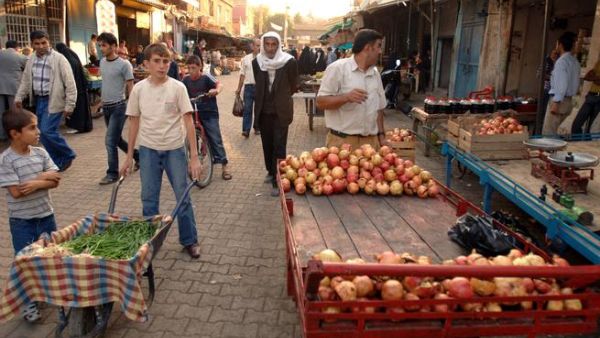Uncertainties are weighing heavily on Arab economies and structural reform is, more than ever, needed to avert falling into a vicious cycle of economic deterioration and unrest, warned panelists speaking at the Annual Arab Banking Conference which commenced in Beirut Friday.
“Without political stability our ability to plan on the medium and long terms is crippled, eliminating our ability to stimulate growth and development,” Economy Minister Nicolas Nahas told Arab officials and bankers attending the conference organized by the Union of Arab Banks.
Marwan Awad, CEO of Jordan Ahli Bank, said non-oil producing MENA economies are in the abyss. Elaborating on the situation of Jordan, he said the country’s economy has been in decline since revolutions started across the Arab world 2 years ago.
He said revolutions in two of Jordan’s strategic economic partners, Egypt and Syria, had a dire economic impact. Losses from disruption of Egyptian gas to the country, he said, alone stand at a massive $1.8 billion.
The annual budget deficit in the country, he added, is expected to reach $4-5 billion by the end of 2012, highlighting similar trends in Lebanon as well as non-oil producing North African countries.
During the past two years, he said, public debt has soared from $17 billion to $23 billion, leading to a violation of debt restrictions set by the kingdom’s own constitution.
“The Jordanian financial sector is being caught between the jaws of the pillars and other non-oil producing MENA countries are no better,” he said.
On one hand, he said, economic growth, which will not exceed 1.4 percent in most non-oil MENA countries in 2012, is vital to the financial sector and its ability to grow.
On the other hand, he said, excessive borrowing by governments crowds out the private sector, inducing further deterioration in economic conditions: “Our economies could enter a vicious circle of recession, higher debt and falling income.”
Awad called on richer Arab countries to embark on an economic rescue plan before the region plunges into unprecedented economic decline: “The economic diseases have become chronic and could become infectious.”
Speaking with Nahas on the same panel, Alfred Krammer, MENA Deputy Director at the International Monetary Fund also argued that political risks to the region’s economies are mounting.
“The Syrian conflict particularly creates large uncertainties for the whole region,” he said.
The IMF, he said, was working with governments to improve economic statistics and data gathering to provide a platform for sound and robust economic policies.
Arguing that reforms “imposed from above” have failed to spur economic development, Krammer called on Arab policymakers to consult with their society stakeholders to achieve consensuses on reform plans.
The IMF official also called on Arab countries to take politically-difficult decisions of reducing public expenditures, debt and move away from subsidies to targeted social aid.
Asked by the panel moderators whether intra-regional trade has done its share in boosting economies, Nahas said more work should have been done in harmonizing legislations.
“It took decades for countries in the European Common Market to regulate and harmonize laws. But in the case of [the Arab Free Trade Agreement] we jumped directly into a trade union that has very little coherence,” he said.
But the main challenge to boosting regional trade is the lingering weakness of productive sectors. “In the region we import over 80 percent of our consumption,” he said calling on countries to invest heavily in manufacturing and agriculture.
Speaking on the conference’s second panel, Mohammad Beyhum, executive general manager of BankMed, said the deteriorating economy is a result of internal political strife opposed to regional chaos.
“In fact, Lebanon has lost, because of domestic political problems, a chance to attract significant investments that could have sustained the level of growth between 2007 and 2010,” he said.








